 | www.mari-language.com: | ENGLISH | МАРЛА | ПО-РУССКИ |
| Main page | ||
 | www.mari-language.com: | ENGLISH | МАРЛА | ПО-РУССКИ |
| Main page | ||
Welcome to www.mari-language.com. Mari is a Finno-Ugric (Uralic) language spoken by several hundred thousand people in the Volga and Ural regions of the Russian Federation. This website aims to provide essential linguistic materials for both students of the Mari language and native speakers, free of charge on the Internet. The following resources are now ready for use:
Dictionary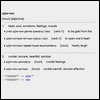 dict.mari-language.com |
A Mari-English dictionary with 42,560 headwords and 82,740 subentries, including 10,750 set phrases. |
Textbook omj.mari-language.com |
This Mari textbook is an English-language version of the 1990/1991 Russian-language textbook Марийский язык для всех, Volumes I & II, extensively adapted to suit the needs of self-learners. Accompanying audio materials and other supplementary resources are provided as well. |
COPIUS Video course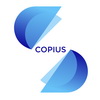 www.copius.eu/mari |
This video course consists of over 92 plus hours of annotated and indexed video recordings aimed to assist students of the Mari language. |
Grammar grammar.mari-language.com |
Our Mari grammar seeks to give a comprehensive overview of the Mari language. It is geared towards learners of the language; grammatical explanations will be accompanied by appropriate exercises. |
Morphological Tools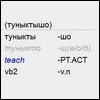 morph.mari-language.com |
Our morphological generator and analyzer seek to help users construct and deconstruct Mari words. |
Corpus Tools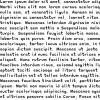 corpus.mari-language.com |
We have published an infrastructure that will enable users to search Mari texts in non-trivial manners, e.g., by syntactic patterns. |
Transcription Tool transcribe.mari-language.com |
This tool provides assistance in dealing with different writing systems used in Mari. Tools for Russian and Tatar are also available, as well as some more basic tools for a wide range of languages using variants of the Latin and Cyrillic alphabets. |
Keyboard & Fonts tech.mari-language.com |
This section aims to provide assistance in the use of Mari in computing. Solutions for common problems are discussed in detail; keyboard layouts and fonts can be downloaded. |
Reading Hill Mari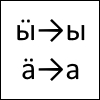 rhm.mari-language.com |
Our book “Reading Hill Mari through Meadow Mari" aims to lessen the linguistic isolation of Hill Mari by giving students and scholars with a working knowledge of Meadow Mari (the dominant literary standard of Mari, which is accessible through various materials on our website) a contrastive overview of the two literary standards, focusing on systematic differences in phonology and morphology, and thus allowing them to utilize their knowledge of Meadow Mari to read Hill Mari texts as well. |
The following resources are under development and will be in 2022 or later:
Hill Mari Dictionary hill.mari-language.com |
We are in the process of developing a Hill Mari-Meadow Mari-English dictionary which will be cross-integrated with our (Meadow) Mari-English dictionary. Hill Mari lexemes will be linked up with their cognates and semantic counterparts in Meadow Mari; their various facets of meaning will be translated into English; Hill Mari example sentences will be provided with both Meadow Mari and English translations. |
Other sections:
About Us team.mari-language.com |
Site Map map.mari-language.com | ||
Source Code src.mari-language.com |
In the Press press.mari-language.com |
Links links.mari-language.com |
Legal Info legal.mari-language.com |
 |
 |
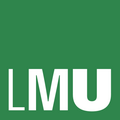 |
 |
||
| The Mari Web Project is primarily based at the Department of Finno-Ugric Studies at the University of Vienna. The Mari-English Dictionary was funded by the Austrian Science Fund (FWF): P22786-G20. The second stage of the project is being funded by the Kone Foundation: The Mari Web Project: Phase 2. Some of our work is carried out at the Institute of Finno-Ugric and Uralic Studies at the Ludwig Maximilian University of Munich. | ||
| Last update: 11 September 2024 Accessibility statement (German) |
||